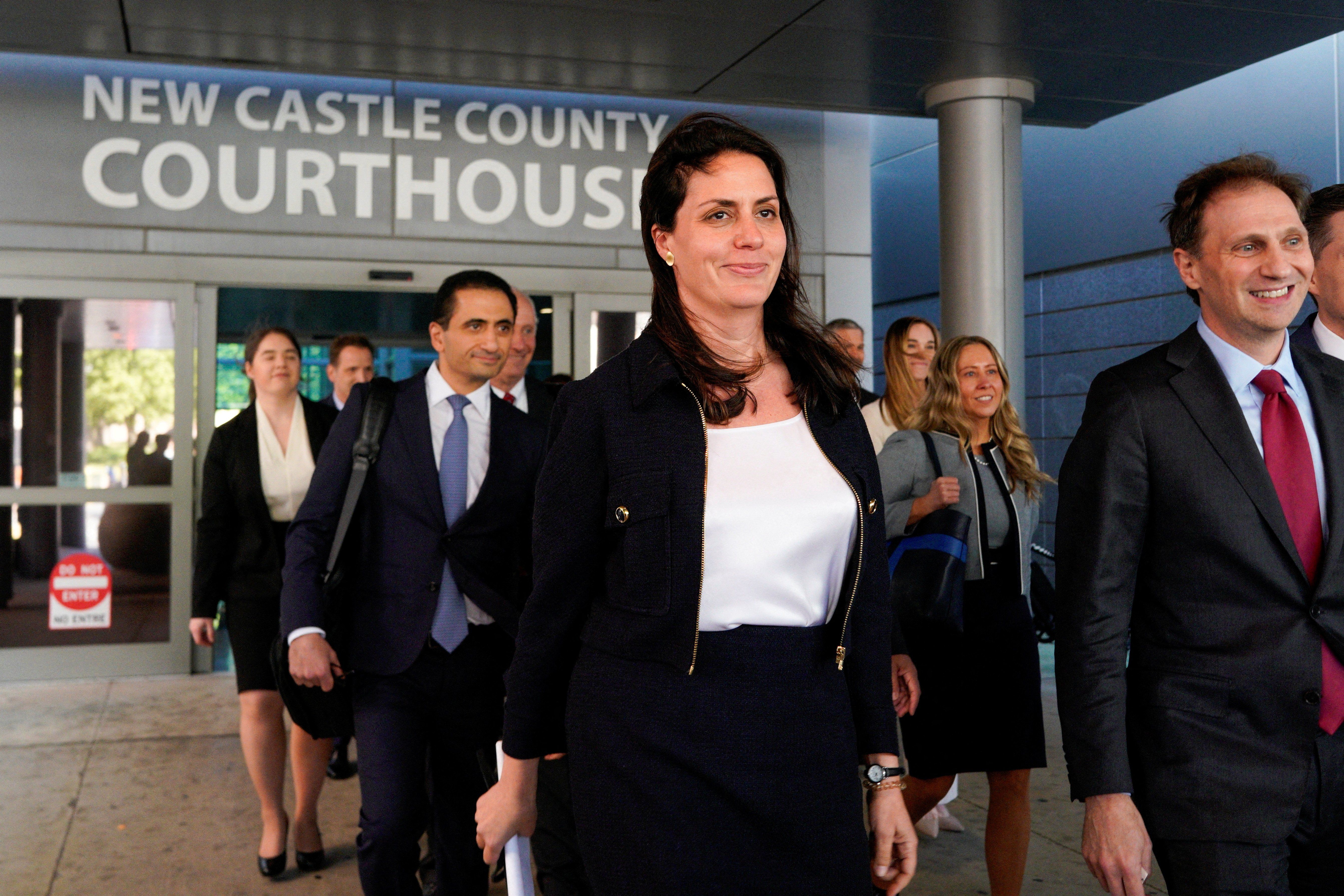Fox News & Dominion settle defamation suit
It could’ve been the “Super Bowl of libel law,” but the trial was canceled before it began on Tuesday. Fox News and Dominion Voting Systems reached a deal that includes Fox paying $787.5 million for their on-air claims that Dominion rigged the 2020 election for Joe Biden, reportedly the largest single media defamation settlement in US history.
(Alex Jones’s $1.5 billion in damages to the Sandy Hook families he smeared was separated into three lawsuits. Gone are the days of coughing up merely $177 million for this stuff to go away, like Disney/ABC did in 2017 over the "pink slime" report scandal.)
Fox recognized in the settlement agreement that "certain claims" about Dominion aired on its shows were found to be “false” — a rare and high-profile admittance of wrongdoing in conservative media and America's most popular cable network by viewership. Settling saves the network — and its parent company, News Corp — weeks of headlines about testimony and possible reputational damage. It also spares Fox hosts and execs from testifying about their internal emails and texts, which reportedly revealed they did not believe former President Donald Trump’s voter fraud claims.
But Fox is not out of the woods yet. The cable giant still faces a similar lawsuit from Smartmatic, another voting tech company that was also called out by name on Fox after the 2020 election. That case is still in the discovery process, and a trial isn’t expected anytime soon.
UN on its way out of Afghanistan
The United Nations might withdraw from Afghanistan as early as next month, officials said Tuesday. Donor funding is drying up after the ruling Taliban recently decreed that UN programs operating in the country can no longer employ women.
The consequences would be catastrophic, to put it mildly. Consider that 90% of Afghans live under the poverty line, and two-thirds don't know where their next meal is coming from. NGOs and local aid agencies can't pick up the slack because almost all of them have either suspended or curtailed work over the female employment ban.
Unsurprisingly, the Taliban are playing hardball. The fundamentalist Islamic regime wants to keep all women at home. They claim to have eradicated corruption and to have fixed the economy since returning to power in Aug. 2021.
But UN Development Program data show that the economic “recovery” has been mostly fueled by rising aid money. A 30% drop this year in international assistance could see Afghanistan’s GDP shrink by as much as a tenth in 2024.
The dangerous debt ceiling fight is on
Democrats and Republicans are again moving toward a legislative showdown over whether (and for how long) to increase the limit on US federal debt to allow continued spending. It appears Congress will reach its current spending limit in the first week of August, and if it’s not extended, the US could default on its debt, creating a global crisis. Similar showdowns in 2011 and 2013 were resolved only at the last minute and not without damage.
US House Speaker Kevin McCarthy used a speech at the New York Stock Exchange on Monday to detail his plan to cut $2 trillion in federal spending and extend the debt ceiling to May 2024, but he hasn’t yet sold his ideas to the House Republicans he leads. That sales process begins this week.
Eurasia Group, our parent company, forecasts that failure to unite Republicans around a single bargaining position with the White House would likely allow Congress to approve a short-term increase that pushes the debt limit fight to December. But if the narrow Republican House majority soon agrees on a set of budget cuts the Biden administration will reject, this summer could produce a dangerous political fight at a time when US economic recovery remains fragile – and just as the 2024 election season kicks into high gear.
